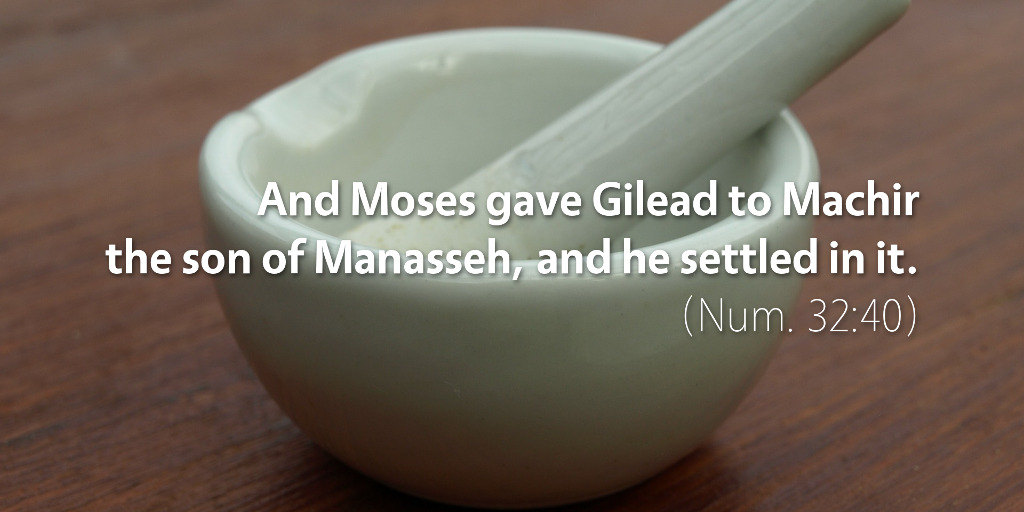Bible Readings for May 23rd
Numbers 32 | Psalm 77 | Isaiah 24 | 1 John 2
The story in Numbers 32 is more important than we might realize at first. In fact, we will continue to hear echoes of the settling of Reuben and Gad in Gilead, the land east of the Jordan, through the rest of the Bible.
We should pay close attention to the agreement that Moses makes with the people of Reuben and Gad. Those tribes would gain the land of Gilead as their inheritance since it was good land for their livestock (Num. 32:1), but only if they agreed to assist their brothers in the conquest of the Promised Land (Num. 32:16–27).
Intriguingly, we learn here that this land of Gilead is the land that formerly belonged to Sihon, king of the Amorites, and to Og, king of Bashan (Num. 32:33). Curiously, these two kings are later mentioned by name twice in the Psalms as the kings whom Yahweh struck down to give their land as a heritage to his people forever (Ps. 135:10–12, 136:17–22).
Why, then, don’t the psalmists sing about Yahweh’s victories over the kings of Jericho or Ai or even of Adoni-zedek, the king of Jerusalem (Josh. 10:1) instead of Sihon and Og? Simply put, the lands of Sihon and Og represent the firstfruits of the Promised Land. In literature, this is called a synecdoche, when a part of something represents the whole. By writing about these victories, they mean us to think of all the victories in the Promised Land.
Gilead itself becomes an important location in the Bible. For example, the prophet Elijah was from the city of Tishbe in Gilead (1 Kgs. 17:1). But even more, the prophet Jeremiah asks a haunting question to illustrate the failure of Israel as God’s people: “Is there no balm in Gilead? Is there no physician there? Why then has the health of the daughter of my people not been restored?” (Jer. 8:22). Again, Gilead is used as a synecdoche for all of Israel—to ask why there is no balm in Gilead is to ask why there is no health for all God’s people.
But the prophet Jeremiah also foretold a day when the balm of Gilead would again heal—and not only Israel but all the nations: “Go up to Gilead, and take balm, O virgin daughter of Egypt! In vain you have used many medicines; there is no healing for you” (Jer. 45:11).
Gilead is a symbol not only of the victories that Yahweh had provided for his people in the past but also of their future hope that Yahweh would one day raise up out of his people a Great Physician with the power to heal—which is why Jesus said explicitly that he had come to heal the sick (Mark 2:17).
There is balm in Gilead, and he heals even the sickest of sinners.
Podcast: Play in new window | Download (5.2MB) | Embed
Subscribe: Apple Podcasts | RSS | More

Scripture quotations are from The Holy Bible, English Standard Version copyright © 2001 by Crossway Bibles, a division of Good News Publishers. Used by permission. All rights reserved.


